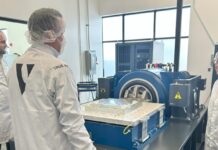The Essence of Software Forking in Open Source
The concept of forking software is fundamental to the open-source community. It allows developers to take an existing piece of software and develop it in a new direction, often leading to innovation and diversity within the software ecosystem. A notable example of this practice is WordPress, one of the most widely used content management systems today. WordPress originated as a fork from the b2/cafelog project. This project was initially a simple blogging platform that laid the groundwork for what WordPress would eventually become.
Forking provided WordPress with the opportunity to evolve and adapt, setting the stage for its growth into a versatile platform supporting millions of websites worldwide. During its early days, WordPress was among several forks of b2. Other notable forks included b2++, which eventually transformed into WordPress Multisite, a version of WordPress that allows multiple sites to run on a single installation. Some forks, such as b2evolution, continue to thrive independently, showcasing the enduring impact of forking on software evolution.
ClassicPress: A Recent Fork of WordPress
The practice of forking is not just a historical footnote; it remains a vital part of the open-source landscape. One of the recent significant forks of WordPress was ClassicPress, initiated in 2018. This fork emerged due to disagreements within the WordPress community regarding the integration of Gutenberg into the core WordPress software. Gutenberg introduced a block-based editor, which represented a significant shift from the traditional WordPress editing experience. Some users and developers preferred the classic editor and felt that Gutenberg’s integration was not in line with their vision for WordPress.
ClassicPress was created to preserve the traditional WordPress experience while also allowing for unique developments and improvements. This initiative highlights how forks can serve as a response to differing opinions within a community, allowing developers and users to pursue paths that align more closely with their preferences and needs.
Introducing FreeWP: A New Direction for WordPress Forking
In a move that underscores the ongoing relevance and potential of software forking, we are thrilled to announce the launch of a new WordPress fork: FreeWP. This initiative has been spearheaded by Vinny Green, a former member of the WordPress community known for his contributions and insights. FreeWP aims to provide an alternative path for those who may not agree with the current direction of WordPress’s development.
Vinny Green’s decision to create FreeWP reflects a growing sentiment among some WordPress users and developers who seek a platform that better aligns with their vision and needs. FreeWP is positioned to shake up the WordPress ecosystem, offering an exciting opportunity for developers to collaborate and innovate outside of the constraints of the main WordPress project.
For those who are passionate about open-source software and believe in the power of community-driven development, FreeWP represents an exciting new frontier. It invites participation from individuals who are eager to explore new ideas and contribute to a project that embraces diverse perspectives and creative solutions.
The Importance of Forking in Software Development
Forking is more than just a technical process; it is a testament to the dynamic and collaborative nature of open-source software development. It allows for the preservation of ideas and functionalities that might otherwise be lost and provides a platform for experimentation and innovation. By enabling developers to explore new directions, forking contributes to the richness and diversity of the software ecosystem.
For users, forks offer choices and alternatives. They can select software that aligns with their specific needs and preferences, rather than being locked into a one-size-fits-all solution. This flexibility is a core principle of open-source software, empowering users to take control of their digital experiences.
In addition, forks can act as incubators for new features and improvements, which can later be integrated back into the original project if they prove successful. This iterative process of development and feedback is a hallmark of healthy open-source ecosystems, fostering continuous improvement and adaptation.
Community Reactions and Future Prospects
The announcement of FreeWP has generated significant interest within the open-source community. Many see it as a promising development that could lead to innovative solutions and improvements in the WordPress ecosystem. As with any new venture, the success of FreeWP will depend on the support and involvement of the community. Developers, designers, and users who are passionate about open-source software have the opportunity to contribute to this emerging project, helping to shape its direction and impact.
Looking ahead, the evolution of FreeWP will be an intriguing journey to follow. It has the potential to influence the broader landscape of content management systems, offering a fresh perspective on what is possible within the realm of open-source software. As FreeWP grows, it will be interesting to see how it differentiates itself from WordPress and what unique features and innovations it will bring to the table.
Conclusion: Embracing the Spirit of Open Source
The launch of FreeWP is a reminder of the vibrant and ever-evolving nature of the open-source community. It highlights the importance of choice, diversity, and collaboration in software development. As users and developers, we can celebrate the spirit of innovation that drives projects like FreeWP, recognizing the value they bring to the digital landscape.
For those interested in exploring FreeWP or contributing to its development, this is an opportune moment to get involved. By participating in projects like FreeWP, individuals can play a part in shaping the future of open-source software, ensuring that it continues to thrive and evolve in response to the needs and aspirations of its community.
For more information on FreeWP and to keep up with its progress, visit their official site. Embrace the opportunity to be part of something new and exciting, and contribute to the ongoing story of open-source innovation.
For more Information, Refer to this article.


































